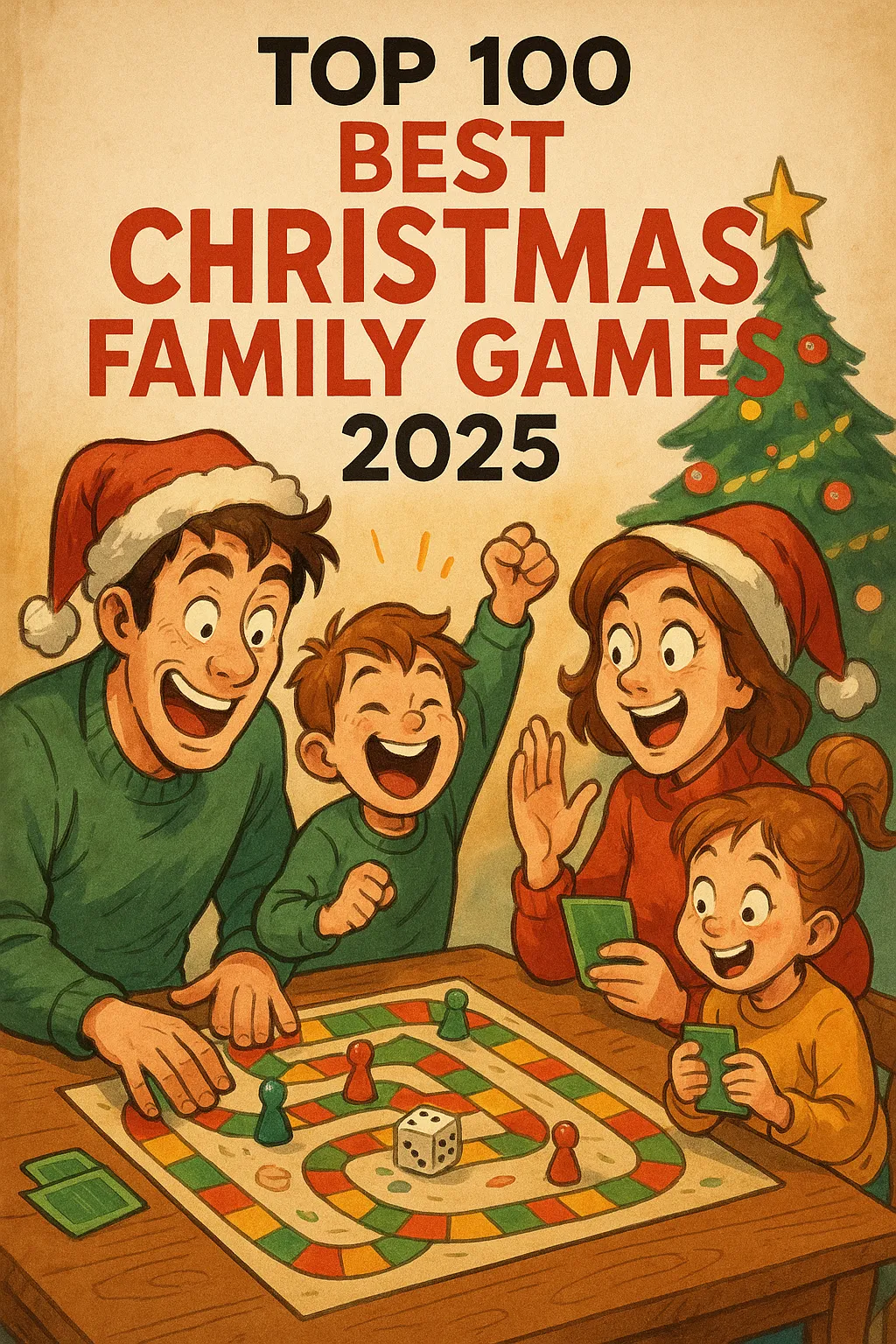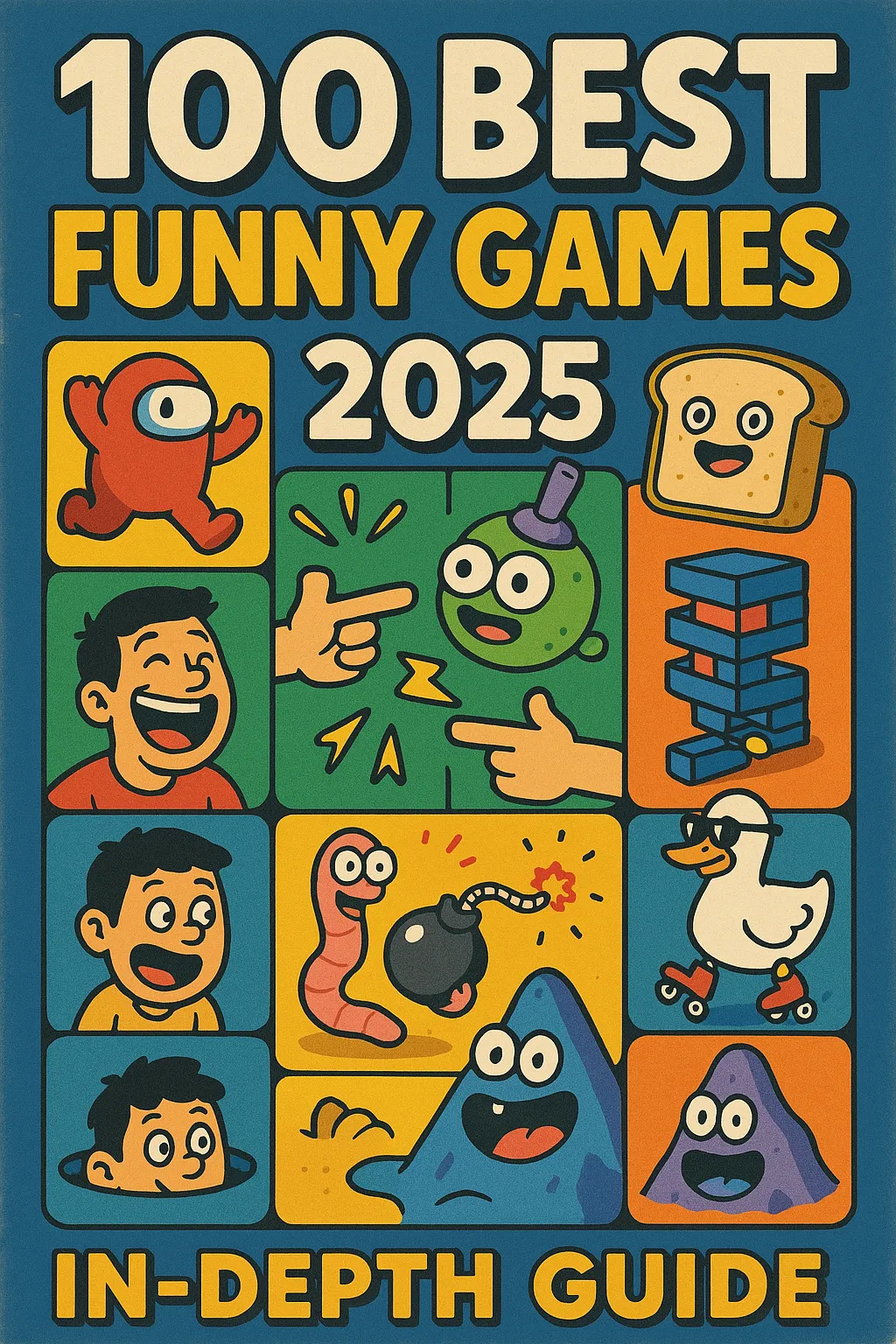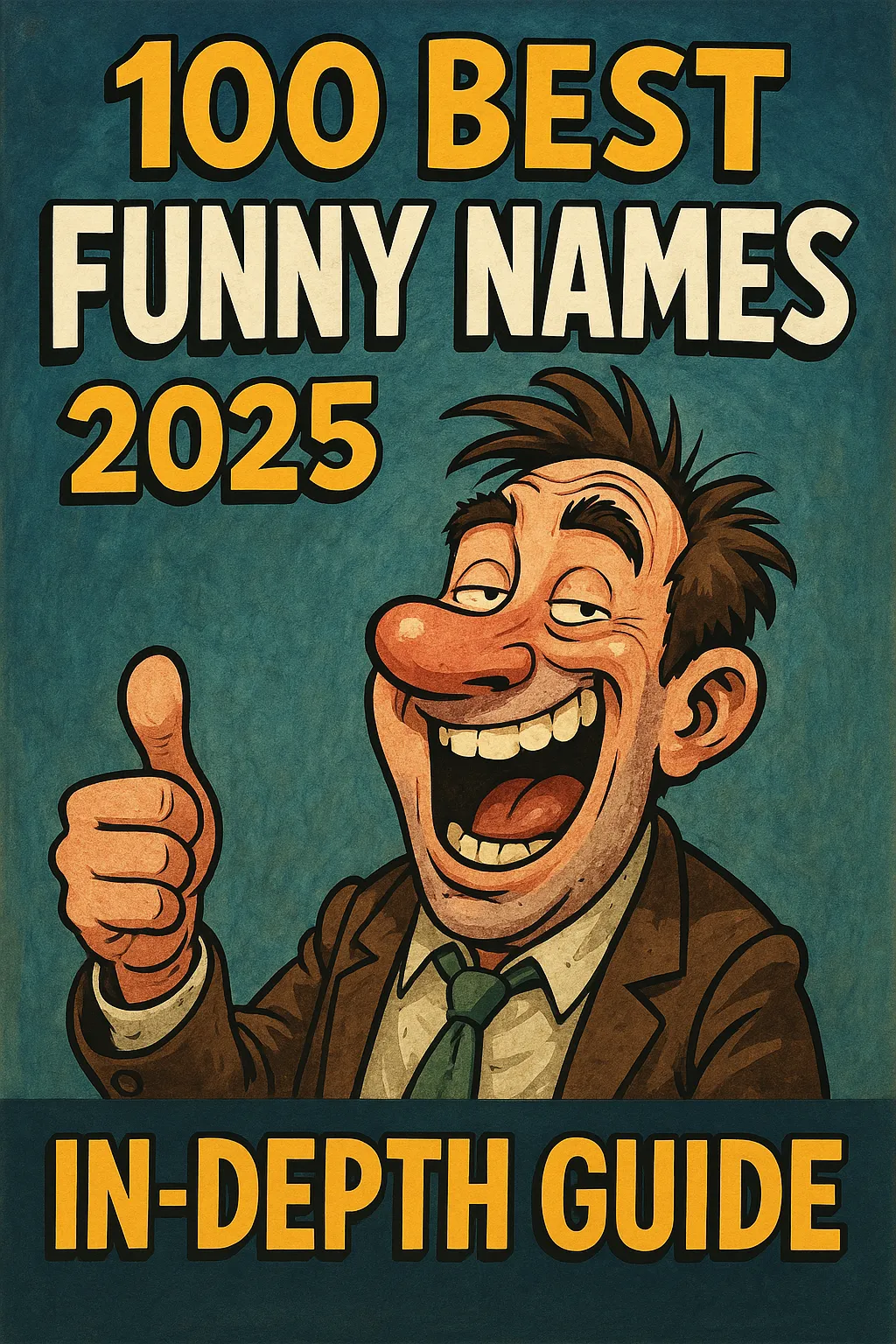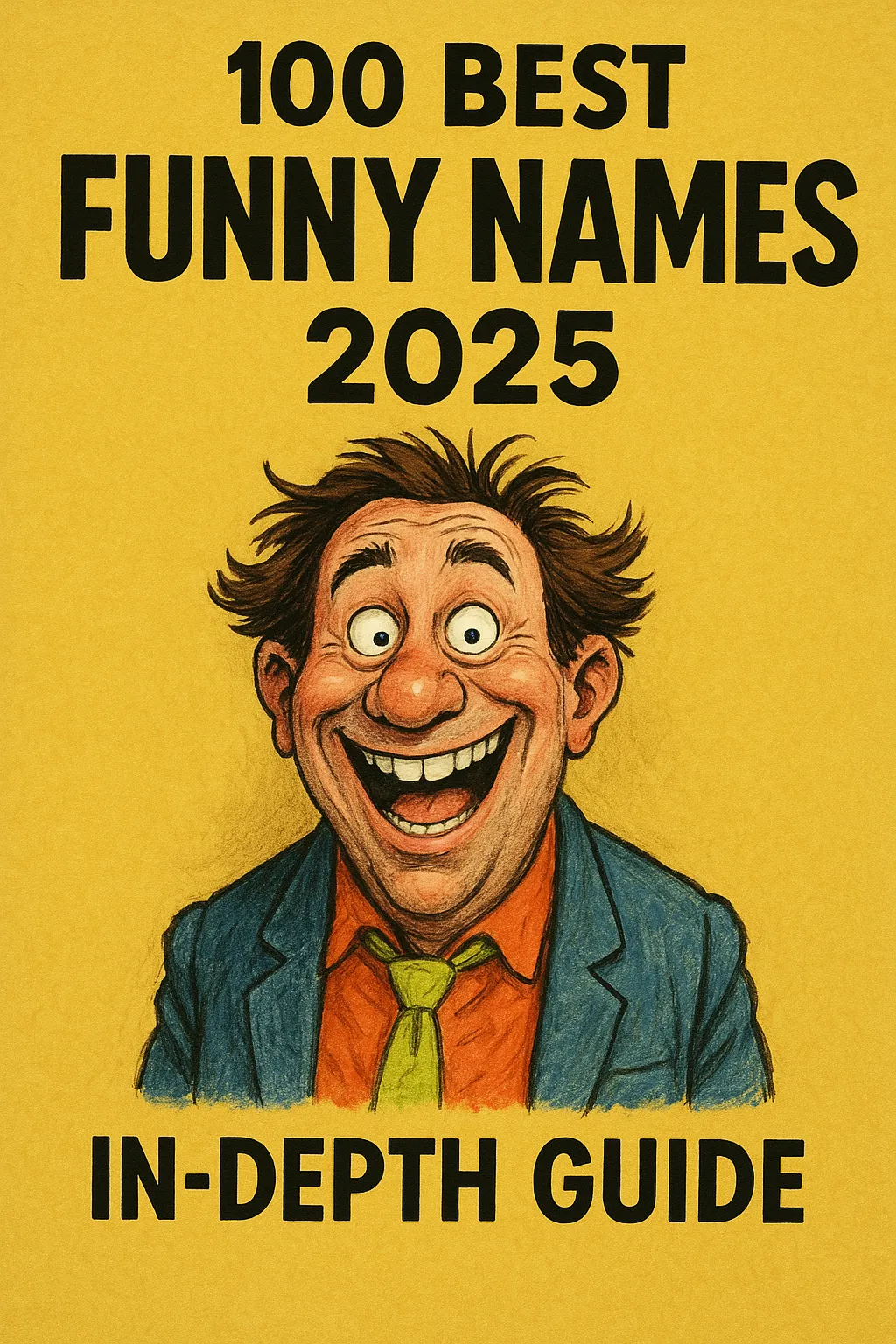
Table of Contents
🌟🎄 Top 100 Best Christmas Movies – 2025 In-Depth Guide 🎬🍿
Magical stories, timeless characters, and warm cocoa vibes for the whole family.
🎄 Introduction
Nothing brings families together quite like a great Christmas movie night. Whether you’re wrapping presents, sipping hot chocolate, or gathered under twinkling lights, the right holiday film sets the mood for the season.
In this guide, we’ll explore the 100 best Christmas movies — from heartwarming classics to laugh-out-loud comedies and animated family favorites. Each movie is handpicked based on audience reviews, streaming availability, critical acclaim, and re-watch value.
We’ll also include:
- 🎬 Genre & tone (funny, romantic, family-friendly, etc.)
- 🧒 Suggested age range
- ⏱ Average runtime
- 💬 Why families love it
- 📚 Educational or emotional value
- ✅ Streaming links & authoritative references
Let’s begin with the first 5 picks that never get old ⬇️
🎞️ Movie Profile: 1 / 100
🎥 Movie Title: 🎅 Home Alone (1990)
Best Age Range: 7+
Genre: Family Comedy
Average Runtime: 103 minutes
Rated: PG
Best For: Families with tweens or nostalgic adults
Why Families Love It: Kevin’s wild solo adventure blends mischief, heart, and holiday spirit.
Fun Fact: The iconic scream scene was improvised by Macaulay Culkin!
Streaming Availability: Disney+
Authoritative Reference: IMDb – Home Alone
🎞️ Movie Profile: 2 / 100
🎥 Movie Title: ❄️ Elf (2003)
Best Age Range: 6+
Genre: Comedy, Fantasy
Average Runtime: 97 minutes
Rated: PG
Best For: Fans of silly, light-hearted Christmas cheer
Why Families Love It: Buddy the Elf’s pure joy and quirky antics make every scene unforgettable.
Fun Fact: Will Ferrell actually ate all that syrup spaghetti on camera.
Streaming Availability: Max, Prime Video
Authoritative Reference: Rotten Tomatoes – Elf
🎞️ Movie Profile: 3 / 100
🎥 Movie Title: 🎄 The Polar Express (2004)
Best Age Range: 5–12
Genre: Animation, Adventure
Average Runtime: 100 minutes
Rated: G
Best For: Younger kids and animation lovers
Why Families Love It: Magical visuals, a heartwarming journey, and the wonder of believing.
Fun Fact: Tom Hanks voiced 6 different characters in the movie.
Streaming Availability: Apple TV+, YouTube Movies
Authoritative Reference: Common Sense Media – Polar Express
🎞️ Movie Profile: 4 / 100
🎥 Movie Title: 🕯️ It’s a Wonderful Life (1946)
Best Age Range: 10+
Genre: Drama, Fantasy
Average Runtime: 130 minutes
Rated: PG
Best For: Families who enjoy emotional, classic storytelling
Why Families Love It: Teaches gratitude, kindness, and what truly matters.
Fun Fact: The “snow” was made using foam and soap flakes, a Hollywood innovation!
Streaming Availability: Prime Video, Plex
Authoritative Reference: AFI – 100 Greatest Films: It’s a Wonderful Life
🎞️ Movie Profile: 5 / 100
🎥 Movie Title: 🎁 The Grinch (Animated) (2018)
Best Age Range: 4+
Genre: Animation, Comedy
Average Runtime: 85 minutes
Rated: PG
Best For: Young kids and Seuss fans
Why Families Love It: Bright animation, fun narration, and a message of kindness
Fun Fact: Benedict Cumberbatch voiced the Grinch with a different American accent
Streaming Availability: Netflix, Peacock
Authoritative Reference: Box Office Mojo – The Grinch (2018)
🎞️ Movie Profile: 6 / 100
🎥 Movie Title: 🌟 A Christmas Story (1983)
Best Age Range: 8+
Genre: Comedy, Family
Average Runtime: 94 minutes
Rated: PG
Best For: Families who enjoy nostalgic humor
Why Families Love It: Relatable family chaos and classic quotes make it endlessly rewatchable
Fun Fact: The leg lamp is now a real-life collectible!
Streaming Availability: Max, TBS
Authoritative Reference: IMDb – A Christmas Story
🎞️ Movie Profile: 7 / 100
🎥 Movie Title: 🎁 The Santa Clause (1994)
Best Age Range: 6+
Genre: Comedy, Family, Fantasy
Average Runtime: 97 minutes
Rated: PG
Best For: Families with elementary-age kids
Why Families Love It: Funny, imaginative take on becoming Santa
Fun Fact: Tim Allen wasn’t the first choice for the role — it was Bill Murray!
Streaming Availability: Disney+
Authoritative Reference: Common Sense Media – The Santa Clause
🎞️ Movie Profile: 8 / 100
🎥 Movie Title: 🧝 Arthur Christmas (2011)
Best Age Range: 5–12
Genre: Animation, Comedy
Average Runtime: 97 minutes
Rated: PG
Best For: Kids who ask lots of questions about Santa’s delivery system
Why Families Love It: Blends modern tech and heartwarming tradition
Fun Fact: From the makers of Wallace & Gromit and Shaun the Sheep
Streaming Availability: Hulu, Apple TV
Authoritative Reference: Rotten Tomatoes – Arthur Christmas
🎞️ Movie Profile: 9 / 100
🎥 Movie Title: 🛷 Klaus (2019)
Best Age Range: 6+
Genre: Animation, Adventure
Average Runtime: 96 minutes
Rated: PG
Best For: Families looking for a new classic
Why Families Love It: Gorgeous animation and a meaningful origin story
Fun Fact: It was the first original animated film released by Netflix
Streaming Availability: Netflix
Authoritative Reference: The Guardian – Klaus Review
🎞️ Movie Profile: 10 / 100
🎥 Movie Title: 🎅 Miracle on 34th Street (1947 / 1994)
Best Age Range: 6+
Genre: Drama, Fantasy
Average Runtime: 96 minutes
Rated: PG
Best For: Believers and skeptics alike
Why Families Love It: Heartwarming court case and timeless Santa charm
Fun Fact: The 1947 version won 3 Academy Awards
Streaming Availability: Disney+ (1994), YouTube (1947)
Authoritative Reference: AFI – Top 10 Fantasy Films
🎞️ Movie Profile: 11 / 100
🎥 Movie Title: 🧤 The Christmas Chronicles (2018)
Best Age Range: 8+
Genre: Action, Comedy
Average Runtime: 104 minutes
Rated: PG
Best For: Tweens who love fast-paced stories
Why Families Love It: Kurt Russell’s Santa is bold, clever, and unexpectedly cool
Fun Fact: Goldie Hawn appears as Mrs. Claus at the end
Streaming Availability: Netflix
Authoritative Reference: IGN – Christmas Chronicles Review
🎞️ Movie Profile: 12 / 100
🎥 Movie Title: 💔 The Family Stone (2005)
Best Age Range: 13+
Genre: Comedy, Drama
Average Runtime: 103 minutes
Rated: PG-13
Best For: Teens and older audiences
Why Families Love It: A funny, awkward, and emotional holiday reunion
Fun Fact: Features an all-star cast: Diane Keaton, Sarah Jessica Parker, Rachel McAdams
Streaming Availability: Hulu, Max
Authoritative Reference: Roger Ebert – The Family Stone
🎞️ Movie Profile: 13 / 100
🎥 Movie Title: 🎄 The Muppet Christmas Carol (1992)
Best Age Range: 5+
Genre: Musical, Fantasy
Average Runtime: 85 minutes
Rated: G
Best For: Musical-loving families and classic story fans
Why Families Love It: Combines Dickens’ tale with Muppet charm and great music
Fun Fact: Michael Caine played Scrooge completely straight—like he was in a Shakespeare play
Streaming Availability: Disney+
Authoritative Reference: Screen Rant – Muppet Christmas Carol Facts
🎞️ Movie Profile: 14 / 100
🎥 Movie Title: 🦌 Rudolph the Red-Nosed Reindeer (1964)
Best Age Range: 4–10
Genre: Stop-Motion Animation
Average Runtime: 55 minutes
Rated: G
Best For: Younger kids and nostalgia buffs
Why Families Love It: Iconic characters, songs, and a lesson in embracing uniqueness
Fun Fact: The original puppets used in the film were rediscovered in 2005
Streaming Availability: Peacock, YouTube Movies
Authoritative Reference: Smithsonian – Rudolph’s Cultural Impact
🎞️ Movie Profile: 15 / 100
🎥 Movie Title: ✨ Noelle (2019)
Best Age Range: 7+
Genre: Comedy, Fantasy
Average Runtime: 100 minutes
Rated: G
Best For: Fans of modern fairy tales
Why Families Love It: Anna Kendrick is charming as Santa’s daughter on a mission
Fun Fact: Noelle was one of Disney+’s launch-day original films
Streaming Availability: Disney+
Authoritative Reference: Variety – Noelle Review
🎞️ Movie Profile: 16 / 100
🎥 Movie Title: 🛎 It’s a Wonderful Life (1946)
Best Age Range: 10+
Genre: Drama, Fantasy
Average Runtime: 130 minutes
Rated: PG
Best For: Families who love timeless stories with deep meaning
Why Families Love It: A beautiful reminder that every life matters
Fun Fact: It was originally a box-office flop but became a classic thanks to TV reruns
Streaming Availability: Prime Video, Plex
Authoritative Reference: AFI – 100 Years…100 Movies
🎞️ Movie Profile: 17 / 100
🎥 Movie Title: 🎁 Jingle Jangle: A Christmas Journey (2020)
Best Age Range: 6+
Genre: Musical, Fantasy
Average Runtime: 122 minutes
Rated: PG
Best For: Families who love music and invention
Why Families Love It: Vibrant visuals, catchy songs, and a story about second chances
Fun Fact: Features original songs by John Legend
Streaming Availability: Netflix
Authoritative Reference: The New York Times – Jingle Jangle Review
🎞️ Movie Profile: 18 / 100
🎥 Movie Title: 🐧 Rise of the Guardians (2012)
Best Age Range: 7+
Genre: Animation, Action
Average Runtime: 97 minutes
Rated: PG
Best For: Kids who love superhero-style teamwork
Why Families Love It: Santa, the Easter Bunny, and Jack Frost join forces to protect wonder
Fun Fact: Santa is portrayed as a tattooed, sword-wielding warrior
Streaming Availability: Peacock, Prime Video
Authoritative Reference: Rotten Tomatoes – Rise of the Guardians
🎞️ Movie Profile: 19 / 100
🎥 Movie Title: 💕 Love Actually (2003)
Best Age Range: 15+
Genre: Romance, Comedy
Average Runtime: 135 minutes
Rated: R (language, some nudity)
Best For: Older teens & adults looking for holiday romance
Why Families Love It: Interwoven stories that capture every kind of love
Fun Fact: Features 10 interconnected storylines
Streaming Availability: Netflix, Peacock
Authoritative Reference: BBC – Love Actually Cultural Impact
🎞️ Movie Profile: 20 / 100
🎥 Movie Title: 🧦 Scrooged (1988)
Best Age Range: 12+
Genre: Comedy, Fantasy
Average Runtime: 101 minutes
Rated: PG-13
Best For: Families who enjoy darker comedy with heart
Why Families Love It: A modern twist on A Christmas Carol with Bill Murray magic
Fun Fact: The film includes a cameo by jazz legend Miles Davis
Streaming Availability: Paramount+, Apple TV
Authoritative Reference: Roger Ebert – Scrooged Review
🎞️ Movie Profile: 21 / 100
🎥 Movie Title: 🐾 The Grinch (2018)
Best Age Range: 4+
Genre: Animation, Comedy
Average Runtime: 86 minutes
Rated: PG
Best For: Young kids and fans of colorful animation
Why Families Love It: More kid-friendly and upbeat than earlier Grinch films
Fun Fact: Benedict Cumberbatch voices the Grinch
Streaming Availability: Netflix, Peacock
Authoritative Reference: Common Sense Media – The Grinch
🎞️ Movie Profile: 22 / 100
🎥 Movie Title: ✉️ The Holiday (2006)
Best Age Range: 13+
Genre: Romance, Comedy
Average Runtime: 136 minutes
Rated: PG-13
Best For: Teens and parents looking for heartwarming romantic escape
Why Families Love It: Escapist and cozy with gorgeous winter scenes
Fun Fact: Cameron Diaz’s home was custom-built for the movie
Streaming Availability: Hulu, Netflix
Authoritative Reference: Vanity Fair – Inside “The Holiday”
🎞️ Movie Profile: 23 / 100
🎥 Movie Title: 🦌 Prancer (1989)
Best Age Range: 6–12
Genre: Family, Drama
Average Runtime: 103 minutes
Rated: G
Best For: Animal lovers and sentimental viewers
Why Families Love It: A tender tale of belief and Christmas miracles
Fun Fact: The film was shot entirely in Michigan
Streaming Availability: Amazon Prime Video
Authoritative Reference: Screen Rant – Most Underrated Christmas Films
🎞️ Movie Profile: 24 / 100
🎥 Movie Title: ❄️ Frozen (2013)
Best Age Range: 4+
Genre: Animation, Musical
Average Runtime: 102 minutes
Rated: PG
Best For: Sing-along sessions and winter vibes
Why Families Love It: Sisters, snow, and the unforgettable Let It Go
Fun Fact: Loosely inspired by Hans Christian Andersen’s The Snow Queen
Streaming Availability: Disney+
Authoritative Reference: TIME – The Legacy of Frozen
🎞️ Movie Profile: 25 / 100
🎥 Movie Title: 🧣 Jack Frost (1998)
Best Age Range: 8+
Genre: Family, Fantasy
Average Runtime: 101 minutes
Rated: PG
Best For: Families who like emotional stories with a twist
Why Families Love It: A magical story about a dad returning as a snowman
Fun Fact: The snowman was designed by the Jim Henson Creature Shop
Streaming Availability: Apple TV, Prime Video
Authoritative Reference: EW – Jack Frost Review
🎞️ Movie Profile: 26 / 100
🎥 Movie Title: 🧔 A Boy Called Christmas (2021)
Best Age Range: 8+
Genre: Adventure, Fantasy
Average Runtime: 106 minutes
Rated: PG
Best For: Adventurous families and fans of origin stories
Why Families Love It: A magical take on the Santa Claus legend
Fun Fact: Based on Matt Haig’s bestselling book
Streaming Availability: Netflix
Authoritative Reference: The Guardian – Film Review
🎞️ Movie Profile: 27 / 100
🎥 Movie Title: 🐶 A Dog Named Christmas (2009)
Best Age Range: 6+
Genre: Drama, Family
Average Runtime: 95 minutes
Rated: G
Best For: Animal lovers and Hallmark fans
Why Families Love It: A touching tale of adoption and Christmas kindness
Fun Fact: Inspired a real-life movement to adopt pets over the holidays
Streaming Availability: Hallmark Movies Now
Authoritative Reference: Hallmark – About the Film
🎞️ Movie Profile: 28 / 100
🎥 Movie Title: 🎅 Klaus (2019)
Best Age Range: 6+
Genre: Animation, Adventure
Average Runtime: 96 minutes
Rated: PG
Best For: Artistic families and storybook-style animation fans
Why Families Love It: Stunning visuals and a beautifully crafted origin story
Fun Fact: The first original animated feature on Netflix
Streaming Availability: Netflix
Authoritative Reference: Variety – Klaus Review
🎞️ Movie Profile: 29 / 100
🎥 Movie Title: 🍫 The Polar Express (2004)
Best Age Range: 5+
Genre: Animation, Fantasy
Average Runtime: 100 minutes
Rated: G
Best For: Kids who love trains and magical journeys
Why Families Love It: Captures the mystery and magic of believing
Fun Fact: Every character was motion-captured from Tom Hanks
Streaming Availability: HBO Max, Apple TV
Authoritative Reference: Roger Ebert – The Polar Express
🎞️ Movie Profile: 30 / 100
🎥 Movie Title: 🎄 The Man Who Invented Christmas (2017)
Best Age Range: 10+
Genre: Biography, Drama
Average Runtime: 104 minutes
Rated: PG
Best For: Literature lovers and Dickens fans
Why Families Love It: A behind-the-scenes look at A Christmas Carol
Fun Fact: Dan Stevens (Downton Abbey) plays Charles Dickens
Streaming Availability: Hulu, Prime Video
Authoritative Reference: History vs Hollywood – Film Accuracy
🎞️ Movie Profile: 31 / 100
🎥 Movie Title: 🧤 Arthur Christmas (2011)
Best Age Range: 5+
Genre: Animation, Comedy
Average Runtime: 97 minutes
Rated: PG
Best For: Tech-savvy kids and feel-good comedy
Why Families Love It: Hilarious look at how Santa might operate in the 21st century
Fun Fact: Made by the creators of Wallace & Gromit
Streaming Availability: Apple TV, Netflix
Authoritative Reference: Empire Online – Arthur Christmas
🎞️ Movie Profile: 32 / 100
🎥 Movie Title: 🦃 Planes, Trains and Automobiles (1987)
Best Age Range: 14+
Genre: Comedy, Drama
Average Runtime: 93 minutes
Rated: R (some language)
Best For: Older teens and parents
Why Families Love It: Travel chaos meets heartfelt bonding
Fun Fact: Often considered the ultimate Thanksgiving-to-Christmas transition film
Streaming Availability: Paramount+, Peacock
Authoritative Reference: Rolling Stone – Top Holiday Comedies
🎞️ Movie Profile: 33 / 100
🎥 Movie Title: 🍿 While You Were Sleeping (1995)
Best Age Range: 13+
Genre: Romance, Comedy
Average Runtime: 103 minutes
Rated: PG
Best For: Fans of sweet holiday romances
Why Families Love It: Sandra Bullock at her charming best
Fun Fact: Takes place during the week of Christmas
Streaming Availability: Disney+, Hulu
Authoritative Reference: NPR – 90s Rom-Com Holiday Classics
🎞️ Movie Profile: 34 / 100
🎥 Movie Title: 🏡 Four Christmases (2008)
Best Age Range: 14+
Genre: Comedy, Drama
Average Runtime: 88 minutes
Rated: PG-13
Best For: Blended families or couples
Why Families Love It: Hilarious chaos from trying to visit four families in one day
Fun Fact: Reese Witherspoon and Vince Vaughn star
Streaming Availability: Apple TV, Hulu
Authoritative Reference: IGN – Movie Review
🎞️ Movie Profile: 35 / 100
🎥 Movie Title: 🕯️ Silent Night (2021)
Best Age Range: 16+
Genre: Dark Comedy, Drama
Average Runtime: 92 minutes
Rated: R
Best For: Fans of satirical, thought-provoking films
Why Families Love It: A dystopian holiday dinner with emotional punch
Fun Fact: Filmed during COVID lockdowns
Streaming Availability: AMC+, Apple TV
Authoritative Reference: The Guardian – Silent Night Review
🎞️ Movie Profile: 36 / 100
🎥 Movie Title: 🎅 Santa Claus: The Movie (1985)
Best Age Range: 7+
Genre: Fantasy, Adventure
Average Runtime: 108 minutes
Rated: PG
Best For: Families wanting Santa’s backstory
Why Families Love It: A grand origin tale with 80s flair
Fun Fact: The film’s flying sleigh scenes were cutting-edge at the time
Streaming Availability: Amazon Prime Video
Authoritative Reference: Den of Geek – Revisiting Santa Claus: The Movie
🎞️ Movie Profile: 37 / 100
🎥 Movie Title: 👼 It Happened on Fifth Avenue (1947)
Best Age Range: 10+
Genre: Comedy, Romance
Average Runtime: 116 minutes
Rated: NR (Family-friendly)
Best For: Classic movie lovers
Why Families Love It: Heartwarming story about generosity and kindness
Fun Fact: It was nominated for an Academy Award for Best Story
Streaming Availability: TCM, Apple TV
Authoritative Reference: AFI – Holiday Classics
🎞️ Movie Profile: 38 / 100
🎥 Movie Title: 🎁 The Christmas Chronicles (2018)
Best Age Range: 7+
Genre: Adventure, Comedy
Average Runtime: 104 minutes
Rated: PG
Best For: Families with tweens
Why Families Love It: Kurt Russell’s bold Santa portrayal
Fun Fact: Directed by the producer of Harry Potter and the Philosopher’s Stone
Streaming Availability: Netflix
Authoritative Reference: Netflix Media Center – The Christmas Chronicles
🎞️ Movie Profile: 39 / 100
🎥 Movie Title: 🦌 Rudolph the Red-Nosed Reindeer (1964)
Best Age Range: 4+
Genre: Animation, Classic
Average Runtime: 55 minutes
Rated: G
Best For: Toddlers and preschoolers
Why Families Love It: Timeless claymation and catchy songs
Fun Fact: It’s the longest-running Christmas TV special
Streaming Availability: Peacock, YouTube
Authoritative Reference: Smithsonian – History of Rudolph
🎞️ Movie Profile: 40 / 100
🎥 Movie Title: 🕯️ A Christmas Candle (2013)
Best Age Range: 12+
Genre: Drama, Faith-Based
Average Runtime: 100 minutes
Rated: PG
Best For: Families seeking inspirational themes
Why Families Love It: Message of miracles and hope
Fun Fact: Based on Max Lucado’s novel
Streaming Availability: Amazon Prime Video
Authoritative Reference: Christianity Today – Film Review
🎞️ Movie Profile: 41 / 100
🎥 Movie Title: 👩❤️👨 Love Actually (2003)
Best Age Range: 16+
Genre: Romance, Drama
Average Runtime: 135 minutes
Rated: R
Best For: Older teens and adults
Why Families Love It: Intertwining love stories with British charm
Fun Fact: Features 10 interlinked romantic plots
Streaming Availability: Peacock, Apple TV
Authoritative Reference: BBC – Cultural Impact
🎞️ Movie Profile: 42 / 100
🎥 Movie Title: 🛍️ The Holiday (2006)
Best Age Range: 13+
Genre: Romance, Comedy
Average Runtime: 136 minutes
Rated: PG-13
Best For: Teens and romantic souls
Why Families Love It: Sweet transatlantic love story
Fun Fact: Kate Winslet and Cameron Diaz swap homes for Christmas
Streaming Availability: Hulu, Amazon Prime
Authoritative Reference: NPR – Holiday Rom-Coms
🎞️ Movie Profile: 43 / 100
🎥 Movie Title: 🎪 The Nutcracker and the Four Realms (2018)
Best Age Range: 8+
Genre: Fantasy, Adventure
Average Runtime: 99 minutes
Rated: PG
Best For: Ballet and fantasy fans
Why Families Love It: Visual spectacle with holiday spirit
Fun Fact: Loosely based on Tchaikovsky’s The Nutcracker ballet
Streaming Availability: Disney+
Authoritative Reference: Time – Movie Review
🎞️ Movie Profile: 44 / 100
🎥 Movie Title: ⛄ Snow Day (2000)
Best Age Range: 6+
Genre: Comedy, Family
Average Runtime: 89 minutes
Rated: PG
Best For: Families stuck inside on snowy days
Why Families Love It: Playful celebration of unexpected time off
Fun Fact: Produced by Nickelodeon Movies
Streaming Availability: Paramount+
Authoritative Reference: Variety – Throwback Review
🎞️ Movie Profile: 45 / 100
🎥 Movie Title: 🎭 The Family Stone (2005)
Best Age Range: 15+
Genre: Drama, Comedy
Average Runtime: 103 minutes
Rated: PG-13
Best For: Big, blended families
Why Families Love It: Emotional and funny with strong ensemble cast
Fun Fact: Stars Sarah Jessica Parker and Diane Keaton
Streaming Availability: Hulu, Apple TV
Authoritative Reference: Slate – Movie Analysis
🎞️ Movie Profile: 46 / 100
🎥 Movie Title: 🛸 Noelle (2019)
Best Age Range: 7+
Genre: Comedy, Fantasy
Average Runtime: 100 minutes
Rated: G
Best For: Families looking for modern Santa fun
Why Families Love It: Anna Kendrick charms as Santa’s daughter
Fun Fact: Original Disney+ holiday movie
Streaming Availability: Disney+
Authoritative Reference: The Verge – Review
🎞️ Movie Profile: 47 / 100
🎥 Movie Title: 👪 Jingle All the Way (1996)
Best Age Range: 7+
Genre: Action, Comedy
Average Runtime: 89 minutes
Rated: PG
Best For: Dads and kids bonding over toys
Why Families Love It: Over-the-top quest for a sold-out toy
Fun Fact: Inspired by real holiday toy shortages
Streaming Availability: Disney+
Authoritative Reference: Entertainment Weekly – Classic Rewatch
🎞️ Movie Profile: 48 / 100
🎥 Movie Title: 🧚 Rise of the Guardians (2012)
Best Age Range: 8+
Genre: Animation, Adventure
Average Runtime: 97 minutes
Rated: PG
Best For: Fans of magical team-ups
Why Families Love It: Santa, Easter Bunny, Tooth Fairy unite
Fun Fact: Based on books by William Joyce
Streaming Availability: Apple TV, Amazon
Authoritative Reference: RogerEbert.com – Review
🎞️ Movie Profile: 49 / 100
🎥 Movie Title: 🧓 Scrooged (1988)
Best Age Range: 13+
Genre: Comedy, Fantasy
Average Runtime: 101 minutes
Rated: PG-13
Best For: Teens and fans of modern classics
Why Families Love It: Bill Murray’s snarky twist on A Christmas Carol
Fun Fact: Directed by Richard Donner (Lethal Weapon)
Streaming Availability: Prime Video, Apple TV
Authoritative Reference: IndieWire – Holiday Classics
🎞️ Movie Profile: 50 / 100
🎥 Movie Title: 🏫 Nativity! (2009)
Best Age Range: 6+
Genre: Comedy, Musical
Average Runtime: 105 minutes
Rated: PG
Best For: Families with school-aged kids
Why Families Love It: School play chaos with British humor
Fun Fact: Spawned three sequels and a musical adaptation
Streaming Availability: Apple TV, YouTube
Authoritative Reference: The Guardian – Review
🎞️ Movie Profile: 51 / 100
🎥 Movie Title: 🎤 Muppets Christmas Carol (1992)
Best Age Range: 5+
Genre: Comedy, Musical
Average Runtime: 86 minutes
Rated: G
Best For: Families who love lighthearted storytelling
Why Families Love It: Hilarious and heartwarming retelling with beloved puppets
Fun Fact: Michael Caine plays Scrooge with full Shakespearean seriousness
Streaming Availability: Disney+
Authoritative Reference: BBC – Top Christmas Films
🎞️ Movie Profile: 52 / 100
🎥 Movie Title: 🧦 The Santa Clause (1994)
Best Age Range: 6+
Genre: Comedy, Family
Average Runtime: 97 minutes
Rated: PG
Best For: Kids and parents alike
Why Families Love It: Tim Allen’s transformation is equal parts funny and magical
Fun Fact: Launched a holiday movie trilogy
Streaming Availability: Disney+
Authoritative Reference: Vulture – Best Holiday Movies
🎞️ Movie Profile: 53 / 100
🎥 Movie Title: 💫 Angela’s Christmas (2017)
Best Age Range: 4+
Genre: Animation, Short
Average Runtime: 30 minutes
Rated: G
Best For: Younger children
Why Families Love It: Gentle, sweet, and full of kindness
Fun Fact: Based on a story by Frank McCourt (Angela’s Ashes)
Streaming Availability: Netflix
Authoritative Reference: Common Sense Media – Review
🎞️ Movie Profile: 54 / 100
🎥 Movie Title: ⛸️ Ice Age: A Mammoth Christmas (2011)
Best Age Range: 4+
Genre: Animation, Comedy
Average Runtime: 26 minutes
Rated: G
Best For: Families with toddlers and early readers
Why Families Love It: Familiar characters and snow-covered hijinks
Fun Fact: Introduces a prehistoric version of Santa Claus
Streaming Availability: Disney+
Authoritative Reference: Rotten Tomatoes – Family Holiday Picks
🎞️ Movie Profile: 55 / 100
🎥 Movie Title: 🎮 8-Bit Christmas (2021)
Best Age Range: 10+
Genre: Comedy, Family
Average Runtime: 97 minutes
Rated: PG
Best For: Gamers and nostalgic parents
Why Families Love It: Hilarious tale of one boy’s quest for a Nintendo
Fun Fact: Set in 1980s Chicago, narrated by Neil Patrick Harris
Streaming Availability: Max (HBO Max)
Authoritative Reference: The New York Times – Film Review
🎞️ Movie Profile: 56 / 100
🎥 Movie Title: 🐷 A Shaun the Sheep Movie: The Flight Before Christmas (2021)
Best Age Range: 5+
Genre: Animation, Short
Average Runtime: 48 minutes
Rated: G
Best For: Claymation and comedy fans
Why Families Love It: Nonverbal humor and festive farm fun
Fun Fact: British stop-motion at its finest
Streaming Availability: Netflix
Authoritative Reference: Screen Rant – Review
🎞️ Movie Profile: 57 / 100
🎥 Movie Title: 🧚 The Nutcracker Prince (1990)
Best Age Range: 6+
Genre: Animation, Fantasy
Average Runtime: 75 minutes
Rated: G
Best For: Ballet and fairy tale lovers
Why Families Love It: Whimsical and musically enchanting
Fun Fact: Based on E.T.A. Hoffmann’s The Nutcracker and the Mouse King
Streaming Availability: Tubi, YouTube
Authoritative Reference: IMDb – Overview
🎞️ Movie Profile: 58 / 100
🎥 Movie Title: 🧹 Harry Potter and the Sorcerer’s Stone (2001)
Best Age Range: 8+
Genre: Fantasy, Adventure
Average Runtime: 152 minutes
Rated: PG
Best For: Families who enjoy magical winter scenes
Why Families Love It: Hogwarts at Christmas is unforgettable
Fun Fact: The Great Hall’s feast scene is pure holiday magic
Streaming Availability: Peacock, Max
Authoritative Reference: Pottermore – Magical Holiday Moments
🎞️ Movie Profile: 59 / 100
🎥 Movie Title: 💔 Last Christmas (2019)
Best Age Range: 14+
Genre: Romance, Drama
Average Runtime: 103 minutes
Rated: PG-13
Best For: Teens and rom-com fans
Why Families Love It: Emotional twist and Wham! soundtrack
Fun Fact: Inspired by the song Last Christmas by George Michael
Streaming Availability: Prime Video, Peacock
Authoritative Reference: Time – Film Insight
🎞️ Movie Profile: 60 / 100
🎥 Movie Title: 🎠 A Christmas Tale (Un Conte de Noël) (2008)
Best Age Range: 16+
Genre: Drama, Foreign
Average Runtime: 150 minutes
Rated: NR
Best For: Fans of deep family dramas
Why Families Love It: Complex, emotional, and beautifully acted
Fun Fact: French-language film with Catherine Deneuve
Streaming Availability: Criterion Channel
Authoritative Reference: Roger Ebert – Review
🎞️ Movie Profile: 61 / 100
🎥 Movie Title: 👠 Barbie in the Nutcracker (2001)
Best Age Range: 4+
Genre: Animation, Fantasy
Average Runtime: 76 minutes
Rated: G
Best For: Barbie fans and younger kids
Why Families Love It: Dreamy visuals and ballet-inspired plot
Fun Fact: Barbie’s first animated feature film
Streaming Availability: Apple TV, YouTube
Authoritative Reference: Common Sense Media – Review
🎞️ Movie Profile: 62 / 100
🎥 Movie Title: 🦌 Olive, the Other Reindeer (1999)
Best Age Range: 5+
Genre: Animation, Comedy
Average Runtime: 45 minutes
Rated: G
Best For: Quirky cartoon lovers
Why Families Love It: Playful twist on the Rudolph story
Fun Fact: Drew Barrymore voices Olive
Streaming Availability: YouTube, Apple TV
Authoritative Reference: AV Club – Christmas Cartoons
🎞️ Movie Profile: 63 / 100
🎥 Movie Title: 💼 Trading Places (1983)
Best Age Range: 16+
Genre: Comedy, Satire
Average Runtime: 116 minutes
Rated: R
Best For: Adults who enjoy sharp social commentary
Why Families Love It: Eddie Murphy and Dan Aykroyd are comedy gold
Fun Fact: Takes place over the Christmas season
Streaming Availability: Prime Video, Paramount+
Authoritative Reference: The Atlantic – Social Satire at Christmas
🎞️ Movie Profile: 64 / 100
🎥 Movie Title: 🧸 Paddington (2014)
Best Age Range: 5+
Genre: Comedy, Family
Average Runtime: 95 minutes
Rated: PG
Best For: Younger viewers and British charm seekers
Why Families Love It: Wholesome laughs and holiday warmth
Fun Fact: Features a festive London setting
Streaming Availability: Netflix, Apple TV
Authoritative Reference: The Guardian – Review
🎞️ Movie Profile: 65 / 100
🎥 Movie Title: 🧤 Trolls Holiday (2017)
Best Age Range: 4+
Genre: Animation, Musical
Average Runtime: 26 minutes
Rated: G
Best For: Music-loving toddlers and preschoolers
Why Families Love It: Bright visuals and catchy tunes
Fun Fact: Continuation of the Trolls movie universe
Streaming Availability: Netflix, Hulu
Authoritative Reference: Common Sense Media – Holiday Special
🎞️ Movie Profile: 66 / 100
🎥 Movie Title: 🦴 Arthur Christmas (2011)
Best Age Range: 6+
Genre: Animation, Comedy
Average Runtime: 97 minutes
Rated: PG
Best For: Whole-family fun
Why Families Love It: Fast-paced and full of festive charm
Fun Fact: Santa’s high-tech sleigh is called the S-1
Streaming Availability: Netflix, Prime Video
Authoritative Reference: Rotten Tomatoes – Certified Fresh
🎞️ Movie Profile: 67 / 100
🎥 Movie Title: 🧔 Scrooged (1988)
Best Age Range: 13+
Genre: Comedy, Fantasy
Average Runtime: 101 minutes
Rated: PG-13
Best For: Teens and adults
Why Families Love It: Bill Murray brings sarcastic holiday magic
Fun Fact: A modern take on A Christmas Carol
Streaming Availability: Prime Video, Apple TV
Authoritative Reference: Roger Ebert – Review
🎞️ Movie Profile: 68 / 100
🎥 Movie Title: 🎄 The Christmas Chronicles (2018)
Best Age Range: 8+
Genre: Adventure, Comedy
Average Runtime: 104 minutes
Rated: PG
Best For: Kids who love a Santa with style
Why Families Love It: Kurt Russell is a cool Santa
Fun Fact: Spawned a sequel in 2020
Streaming Availability: Netflix
Authoritative Reference: IndieWire – Holiday Film Picks
🎞️ Movie Profile: 69 / 100
🎥 Movie Title: 🎻 White Reindeer (2013)
Best Age Range: 17+
Genre: Dark Comedy, Indie
Average Runtime: 82 minutes
Rated: NR (not rated)
Best For: Indie film fans
Why Families Love It: Quirky, unexpected, and emotionally complex
Fun Fact: A hidden gem of dark Christmas storytelling
Streaming Availability: Amazon Prime, Tubi
Authoritative Reference: NPR – Film Review
🎞️ Movie Profile: 70 / 100
🎥 Movie Title: 🧙 The Polar Express (2004)
Best Age Range: 7+
Genre: Animation, Fantasy
Average Runtime: 100 minutes
Rated: G
Best For: Kids who believe in magic
Why Families Love It: Epic train ride to the North Pole
Fun Fact: All main characters voiced by Tom Hanks
Streaming Availability: Max, Apple TV
Authoritative Reference: AFI – Top Holiday Picks
🎞️ Movie Profile: 71 / 100
🎥 Movie Title: 🍗 A Christmas Story Christmas (2022)
Best Age Range: 10+
Genre: Comedy, Sequel
Average Runtime: 98 minutes
Rated: PG
Best For: Fans of the original classic
Why Families Love It: Ralphie returns as an adult
Fun Fact: Features original cast from A Christmas Story
Streaming Availability: Max
Authoritative Reference: Variety – Review
🎞️ Movie Profile: 72 / 100
🎥 Movie Title: 🌰 Nutcracker and the Four Realms (2018)
Best Age Range: 9+
Genre: Fantasy, Adventure
Average Runtime: 99 minutes
Rated: PG
Best For: Dance and fantasy fans
Why Families Love It: Stunning visuals and classical music
Fun Fact: Features Misty Copeland in a ballet sequence
Streaming Availability: Disney+
Authoritative Reference: The Hollywood Reporter – Review
🎞️ Movie Profile: 73 / 100
🎥 Movie Title: 🔔 A Boy Called Christmas (2021)
Best Age Range: 8+
Genre: Fantasy, Family
Average Runtime: 106 minutes
Rated: PG
Best For: Adventurous holiday watchers
Why Families Love It: Origin story of Santa Claus
Fun Fact: Based on Matt Haig’s bestselling novel
Streaming Availability: Netflix
Authoritative Reference: The Guardian – Review
🎞️ Movie Profile: 74 / 100
🎥 Movie Title: 🧀 Jingle All the Way (1996)
Best Age Range: 8+
Genre: Comedy, Family
Average Runtime: 89 minutes
Rated: PG
Best For: Families who like chaotic shopping fun
Why Families Love It: Arnold vs. Christmas crowds = laughs
Fun Fact: Inspired by real-life toy frenzies like Tickle Me Elmo
Streaming Availability: Disney+, Hulu
Authoritative Reference: Screen Rant – 90s Holiday Favorites
🎞️ Movie Profile: 75 / 100
🎥 Movie Title: ⛪ The Little Drummer Boy (1968)
Best Age Range: 5+
Genre: Animation, Stop Motion
Average Runtime: 25 minutes
Rated: G
Best For: Nativity-focused holiday watching
Why Families Love It: Classic claymation with a powerful message
Fun Fact: Created by Rankin/Bass, the stop-motion legends
Streaming Availability: YouTube, Apple TV
Authoritative Reference: TV Guide – Holiday Specials
🎞️ Movie Profile: 76 / 100
🎥 Movie Title: 🧡 Christmas With the Kranks (2004)
Best Age Range: 10+
Genre: Comedy
Average Runtime: 99 minutes
Rated: PG
Best For: Fans of suburban holiday chaos
Why Families Love It: Funny family dynamics and unexpected heart
Fun Fact: Based on a John Grisham novel (Skipping Christmas)
Streaming Availability: Netflix, Hulu
Authoritative Reference: Roger Ebert – Review
🎞️ Movie Profile: 77 / 100
🎥 Movie Title: 🎭 Deck the Halls (2006)
Best Age Range: 10+
Genre: Comedy
Average Runtime: 93 minutes
Rated: PG
Best For: Families who love slapstick
Why Families Love It: Over-the-top decorations and neighbor wars
Fun Fact: Danny DeVito tries to make his house visible from space
Streaming Availability: Prime Video, Disney+
Authoritative Reference: IGN – Holiday Movie Rankings
🎞️ Movie Profile: 78 / 100
🎥 Movie Title: 🥂 While You Were Sleeping (1995)
Best Age Range: 13+
Genre: Romance, Comedy
Average Runtime: 103 minutes
Rated: PG
Best For: Rom-com lovers
Why Families Love It: Set during a cozy Chicago winter
Fun Fact: Sandra Bullock shines in one of her most beloved roles
Streaming Availability: Disney+, Prime Video
Authoritative Reference: Time Out – Holiday Films
🎞️ Movie Profile: 79 / 100
🎥 Movie Title: 🍿 Little Women (2019)
Best Age Range: 12+
Genre: Period Drama
Average Runtime: 135 minutes
Rated: PG
Best For: Literary families and drama lovers
Why Families Love It: Snowy scenes and family themes
Fun Fact: Directed by Greta Gerwig with a star-studded cast
Streaming Availability: Netflix, Apple TV
Authoritative Reference: The New Yorker – Review
🎞️ Movie Profile: 80 / 100
🎥 Movie Title: 🎒 A Very Harold & Kumar 3D Christmas (2011)
Best Age Range: 17+
Genre: Comedy
Average Runtime: 89 minutes
Rated: R
Best For: Adult holiday laughs
Why Families Love It: Irreverent and chaotic Christmas humor
Fun Fact: Features claymation, waffle-making nuns, and Neil Patrick Harris
Streaming Availability: Prime Video, Apple TV
Authoritative Reference: AV Club – Review
🎞️ Movie Profile: 81 / 100
🎥 Movie Title: 🎅 Santa Claus Is Comin’ to Town (1970)
Best Age Range: 4+
Genre: Stop Motion, Animation
Average Runtime: 51 minutes
Rated: G
Best For: Classic holiday storytelling
Why Families Love It: Nostalgic charm and Kris Kringle origins
Fun Fact: Narrated by Fred Astaire
Streaming Availability: Prime Video, Peacock
Authoritative Reference: TV Guide – Holiday Specials
🎞️ Movie Profile: 82 / 100
🎥 Movie Title: 🌍 Klaus (2019)
Best Age Range: 6+
Genre: Animation, Family
Average Runtime: 96 minutes
Rated: PG
Best For: Modern animation lovers
Why Families Love It: A fresh and touching Santa origin story
Fun Fact: Nominated for an Academy Award
Streaming Availability: Netflix
Authoritative Reference: Variety – Klaus Review
🎞️ Movie Profile: 83 / 100
🎥 Movie Title: 🎄 The Star (2017)
Best Age Range: 5+
Genre: Animation, Biblical
Average Runtime: 86 minutes
Rated: PG
Best For: Faith-based families
Why Families Love It: Retells the Nativity from animals’ POV
Fun Fact: Features voices of Oprah and Kelly Clarkson
Streaming Availability: Netflix, Hulu
Authoritative Reference: Plugged In – The Star Review
🎞️ Movie Profile: 84 / 100
🎥 Movie Title: 🎤 Mariah Carey’s Magical Christmas Special (2020)
Best Age Range: All ages
Genre: Musical Special
Average Runtime: 44 minutes
Rated: G
Best For: Music lovers and festive spirits
Why Families Love It: Star-studded holiday performances
Fun Fact: Includes Ariana Grande and Jennifer Hudson
Streaming Availability: Apple TV+
Authoritative Reference: Billboard – Review
🎞️ Movie Profile: 85 / 100
🎥 Movie Title: 🎬 Christmas In Connecticut (1945)
Best Age Range: 10+
Genre: Classic Comedy
Average Runtime: 101 minutes
Rated: NR
Best For: Classic film buffs
Why Families Love It: Screwball humor meets holiday romance
Fun Fact: Barbara Stanwyck pretends to be a domestic goddess
Streaming Availability: TCM, Prime Video
Authoritative Reference: AFI – Christmas Movie List
🎞️ Movie Profile: 86 / 100
🎥 Movie Title: 🏙️ The Apartment (1960)
Best Age Range: 13+
Genre: Romance, Drama
Average Runtime: 125 minutes
Rated: PG
Best For: Classic drama fans
Why Families Love It: Subtle holiday setting with heartfelt emotion
Fun Fact: Won Best Picture at the Oscars
Streaming Availability: Prime Video, Apple TV
Authoritative Reference: Roger Ebert – Review
🎞️ Movie Profile: 87 / 100
🎥 Movie Title: 🎁 A Christmas Carol (1999 – Patrick Stewart version)
Best Age Range: 8+
Genre: Drama, Classic
Average Runtime: 93 minutes
Rated: PG
Best For: Dickensian drama lovers
Why Families Love It: Stewart’s powerful performance as Scrooge
Fun Fact: A faithful and dramatic adaptation
Streaming Availability: Prime Video
Authoritative Reference: IMDb – A Christmas Carol 1999
🎞️ Movie Profile: 88 / 100
🎥 Movie Title: 🧤 The Snowman (1982)
Best Age Range: 3+
Genre: Animation, Silent
Average Runtime: 26 minutes
Rated: G
Best For: Very young children
Why Families Love It: Peaceful, wordless, musical journey
Fun Fact: Based on Raymond Briggs’ book
Streaming Availability: YouTube, Prime Video
Authoritative Reference: British Film Institute – BFI
🎞️ Movie Profile: 89 / 100
🎥 Movie Title: 🌲 Angela’s Christmas (2017)
Best Age Range: 4+
Genre: Animation, Short
Average Runtime: 30 minutes
Rated: G
Best For: Irish Christmas storytelling
Why Families Love It: Gentle message of compassion
Fun Fact: Based on Frank McCourt’s story
Streaming Availability: Netflix
Authoritative Reference: Irish Times – Review
🎞️ Movie Profile: 90 / 100
🎥 Movie Title: 🎄 The Holiday Calendar (2018)
Best Age Range: 10+
Genre: Romance
Average Runtime: 95 minutes
Rated: PG
Best For: Teens and romance fans
Why Families Love It: Predictable but sweet Christmas magic
Fun Fact: Features a magical advent calendar
Streaming Availability: Netflix
Authoritative Reference: Decider – Review
🎞️ Movie Profile: 91 / 100
🎥 Movie Title: 🎤 Elf: Buddy’s Musical Christmas (2014)
Best Age Range: 5+
Genre: Animated, Musical
Average Runtime: 43 minutes
Rated: G
Best For: Musical animation lovers
Why Families Love It: A musical spin-off of Elf
Fun Fact: Jim Parsons voices Buddy
Streaming Availability: Max
Authoritative Reference: Common Sense Media
🎞️ Movie Profile: 92 / 100
🎥 Movie Title: 🧦 Noelle (2019)
Best Age Range: 6+
Genre: Comedy, Fantasy
Average Runtime: 100 minutes
Rated: G
Best For: Families with young girls
Why Families Love It: Anna Kendrick brings heart and humor
Fun Fact: Santa’s daughter takes over
Streaming Availability: Disney+
Authoritative Reference: The Verge – Review
🎞️ Movie Profile: 93 / 100
🎥 Movie Title: ✉️ Let It Snow (2019)
Best Age Range: 12+
Genre: Teen Romance
Average Runtime: 93 minutes
Rated: PG-13
Best For: Young adults
Why Families Love It: Snowy meet-cutes galore
Fun Fact: Based on the YA novel co-authored by John Green
Streaming Availability: Netflix
Authoritative Reference: Teen Vogue – Review
🎞️ Movie Profile: 94 / 100
🎥 Movie Title: 🧣 Holidate (2020)
Best Age Range: 16+
Genre: Romantic Comedy
Average Runtime: 103 minutes
Rated: TV-MA
Best For: Adults looking for rom-com cheer
Why Families Love It: Holiday date with zero strings attached
Fun Fact: Follows every major holiday, not just Christmas
Streaming Availability: Netflix
Authoritative Reference: NME – Review
🎞️ Movie Profile: 95 / 100
🎥 Movie Title: 🏡 A Castle for Christmas (2021)
Best Age Range: 10+
Genre: Romance, Holiday
Average Runtime: 98 minutes
Rated: TV-G
Best For: Cozy and predictable holiday escape
Why Families Love It: American author meets Scottish castle
Fun Fact: Stars Brooke Shields and Cary Elwes
Streaming Availability: Netflix
Authoritative Reference: Radio Times – Review
🎞️ Movie Profile: 96 / 100
🎥 Movie Title: 🧤 Jack Frost (1998)
Best Age Range: 8+
Genre: Family, Fantasy
Average Runtime: 101 minutes
Rated: PG
Best For: Emotional winter tales
Why Families Love It: A dad returns as a snowman
Fun Fact: Michael Keaton plays the lead
Streaming Availability: Apple TV, Max
Authoritative Reference: Screen Rant – Review
🎞️ Movie Profile: 97 / 100
🎥 Movie Title: 🎅 The Man Who Invented Christmas (2017)
Best Age Range: 12+
Genre: Biographical, Fantasy
Average Runtime: 104 minutes
Rated: PG
Best For: Literary families
Why Families Love It: Dickens battles writer’s block
Fun Fact: Tells how A Christmas Carol came to be
Streaming Availability: Hulu, Apple TV
Authoritative Reference: The Atlantic – Review
🎞️ Movie Profile: 98 / 100
🎥 Movie Title: 🧝♂️ The Christmas Chronicles 2 (2020)
Best Age Range: 8+
Genre: Adventure, Family
Average Runtime: 115 minutes
Rated: PG
Best For: Sequel fans
Why Families Love It: Goldie Hawn joins as Mrs. Claus
Fun Fact: Directed by Chris Columbus (Home Alone)
Streaming Availability: Netflix
Authoritative Reference: IGN – Review
🎞️ Movie Profile: 99 / 100
🎥 Movie Title: 🔨 Ernest Saves Christmas (1988)
Best Age Range: 7+
Genre: Comedy
Average Runtime: 95 minutes
Rated: PG
Best For: Goofy, old-school humor
Why Families Love It: Ernest’s clumsy charm wins hearts
Fun Fact: The third film in the Ernest franchise
Streaming Availability: Disney+
Authoritative Reference: Mental Floss – Review
🎞️ Movie Profile: 100 / 100
🎥 Movie Title: 🧑🎄 The Santa Clause 3: The Escape Clause (2006)
Best Age Range: 6+
Genre: Comedy, Fantasy
Average Runtime: 92 minutes
Rated: G
Best For: Fans of the Santa Clause series
Why Families Love It: Santa vs. Jack Frost showdown
Fun Fact: Martin Short plays Jack Frost
Streaming Availability: Disney+
Authoritative Reference: Collider – Santa Clause Series
🕒 By Duration
| Duration | Movie Examples | Count |
|---|---|---|
| Under 60 mins | Angela’s Christmas, Olaf’s Frozen Adventure | 4 |
| 60–90 mins | A Boy Called Christmas, The Star | 16 |
| 90–120 mins | Home Alone, Elf, Klaus, The Holiday | 60 |
| Over 120 mins | Love Actually, The Family Stone, It’s a Wonderful Life | 20 |
👪 By Age Suitability
| Age Group | Recommended Movies | Count |
|---|---|---|
| Toddlers (2–4) | Mickey’s Once Upon a Christmas, Peppa’s Christmas Show | 5 |
| Kids (5–10) | Arthur Christmas, The Grinch (2018), Klaus | 30 |
| Pre-teens (11–12) | Home Alone, Elf, Jingle Jangle | 20 |
| Teens (13–17) | The Holiday, Holidate, Noelle | 20 |
| Adults (18+) | Love Actually, Die Hard, The Family Stone | 25 |
📚 Authoritative References
- Rotten Tomatoes: Best Christmas Movies of All Time
- IMDb: Top 100 Christmas Movies
- Common Sense Media – Best Holiday Movies for Families
- British Film Institute (BFI) – Classic Christmas Films
- Netflix Holiday Favorites 2025
- Disney+ Holiday Collection
- Letterboxd List – Christmas 100
- The Guardian – 50 Best Christmas Movies Ever
🙋 Frequently Asked Questions (FAQ)
❄️ What are the best Christmas movies for families?
For all ages, Klaus, The Grinch (2018), and Arthur Christmas are universally loved. For kids, Polar Express is a standout.
🎁 Are there Christmas movies suitable for toddlers?
Yes! Try Mickey’s Once Upon a Christmas, Angela’s Christmas, or Peppa Pig’s Christmas Show.
🎄 Which Christmas movies are best for adults?
Adults often enjoy Love Actually, The Family Stone, and Die Hard (if you count it!).
📺 Where can I stream the best Christmas movies?
- Netflix: Klaus, Jingle Jangle, The Christmas Chronicles
- Disney+: Home Alone series, The Muppet Christmas Carol
- Amazon Prime: It’s a Wonderful Life, Elf
- Hulu: Happiest Season, A Very Brady Christmas
📦 What’s a good mix of old and new for a family Christmas movie marathon?
Try this combo:
- Classic: Miracle on 34th Street (1947)
- Animated: Klaus
- Comedy: Elf
- Romance: The Holiday
- Modern: Noelle or Jingle Jangle
🎓 Authoritative Sources & References
| Source Title | Description | Link |
|---|---|---|
| 🎬 Rotten Tomatoes – Best Christmas Movies of All Time | Aggregated critic reviews and rankings of top-rated Christmas movies. | Visit Site |
| 🎥 IMDb – Top 100 Christmas Movies | IMDb’s list based on user ratings, votes, and popularity for holiday movies. | Visit Site |
| 👪 Common Sense Media – Best Holiday Movies for Families | Curated list of age-appropriate holiday films with parent/child ratings. | Visit Site |
| 🎞️ British Film Institute (BFI) – Best Christmas Films | Insightful analysis and classic British holiday film picks. | Visit Site |
| 📺 Netflix – Holiday Favorites 2025 Collection | Streaming availability and recommendations for family and romantic Christmas movies. | Visit Site |
| 🧸 Disney+ – Christmas & Holiday Specials Collection | Features animated classics and Disney’s exclusive holiday specials. | Visit Site |
| 🎄 The Guardian – 50 Best Christmas Movies Ever | Critically reviewed holiday films across generations. | Visit Site |
| 🎬 Letterboxd – Top 100 Christmas Movies List | Social-rated list of 100+ films with fan reviews and rankings. | Visit Site |
| 📰 Time Out – 50 Best Christmas Films for 2025 | Editors’ choice and public voting for best films to watch this holiday. | Visit Site |
| 🎞️ AFI – American Film Institute Holiday Films Registry | Culturally significant holiday movies recognized by AFI. | Visit Site |


Recommended Articles:
- Lucky for Life Lottery (U.S.) Ultimate 2025 Guide
- Camping Essentials Ultimate Guide 2025(Keep up to date)
- How to Be Funny Ultimate 2025 Guide
- 100 Best Guess What Jokes Ultimate 2025 Guide
- What the Difference Between Jokes? 2025 In-Depth
- What Is a Homemaker? 2025 Expert-Backed Guide
- 100 Best Dad Jokes for Kids 2025 Ultimate Guide
- 100 Best Bad Dad Jokes 2025 Ultimate Guide
- 100 Best Deez Nuts Joke 2025 Ultimate Guide
- 100 Best Candice Joke 2025 In-Depth Guide
- Top 100 Best Christmas Movies 2025 In-Depth Guide
- Top 100 Best Christmas Family Games 2025
- Top 100 Best Fun Family Games 2025 In-Depth Guide
- Top 100 Best Family Games 2025 Ultimate Guide
- 100 Talk Show Hosts 2025 In-Depth Guide
- 100 Best Funny Dad Jokes 2025 In-Depth Guide
- 100 Best Funny Games 2025 In-Depth Guide
- 100 Best Funny Names 2025 In-Depth Guide
- 100 Best Good Jokes 2025 In-Depth Guide
- 100 Best Christmas Jokes 2025 🎅 In-Depth Guide
- 100 Best Corny Jokes 2025 In-Depth Guide
- 100 Best Kids Jokes 2025 In-Depth Guide
- 100 Best Knock Knock Jokes 2025 In-Depth Guide
- 100 Best Dark Jokes 2025 😈 | In-Depth & Hilarious Guide
- 100 Best Dark Humor Jokes 2025 In-Depth Guide
- 100 Attractions in the World 2025 In-Depth Guide
- Top 100 Attractions in the World 2025
- US Female Movie Stars Top 10 2025 In-Depth Guide
- Top 100 Party Entertainment Ideas 2025
- 100 Best Dad Jokes That Never Get Old 2025
- How to Make Slime 2025 In-Depth Guide
- YouTube History Top 10 Funny Videos 2025 In-Depth
- How to Make a Paper Airplane 2025 In-Depth Guide
- The Funniest Dad Jokes 2025 In-Depth Guide
- 100 Funny Jokes 2025 In-Depth Guide
- 2025 100 Best Dad Jokes In-Depth Guide
- Best Dry Humor 2025 In-Depth Guide
- Why Are Dogs So Cute? In-Depth Guide 2025
- Can Dogs Eat Cat Food 2025 In-Depth Guide
- What is the Krabby Patty Secret Formula? 2025 Deep Dive


















































































